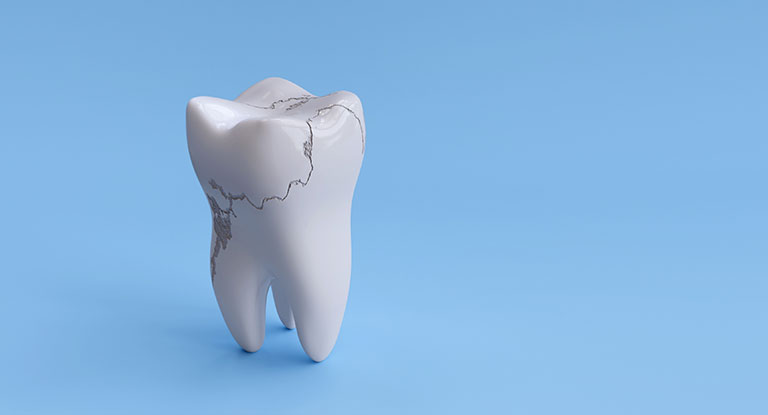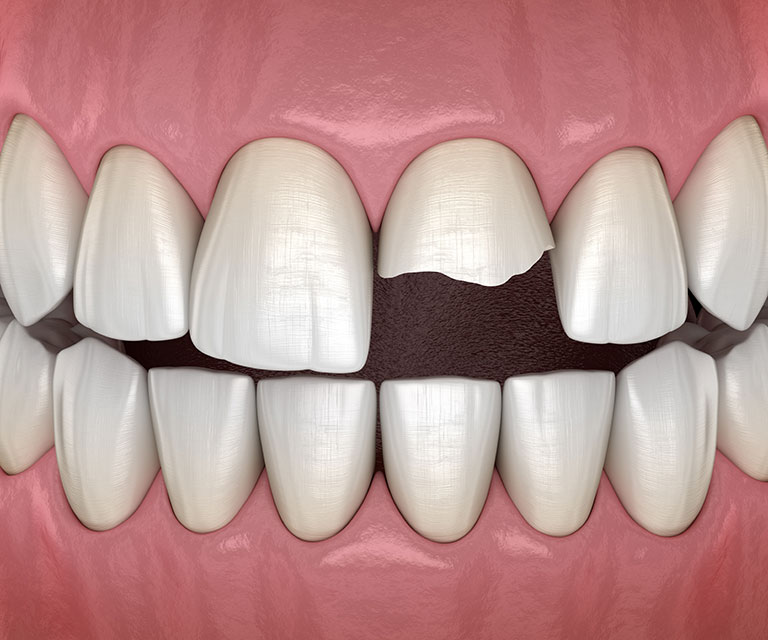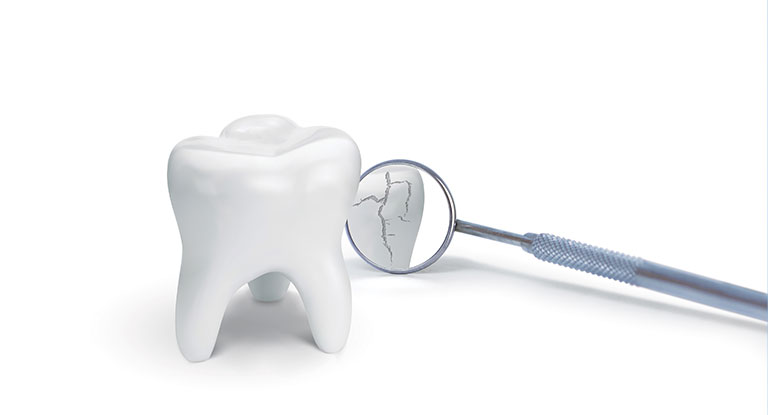

A tooth is said to be cracked when it becomes broken. All teeth do not crack in the same way. However, there are several ways in which teeth can crack, and they are:
A cracked tooth can make you lose an entire tooth if it is not treated on time. You should read further to know more of about teeth cracks and how it can be treated.

Spotting the signs of a cracked tooth is not easy because its symptoms vary. One of the symptoms you will experience is that you will feel pain when you are chewing or biting. You may also experience some discomfort when you take very cold water or drink. You may be sensitive to sweetness even if there are no signs of decay and the gum around the affected area. Your doctor may recommend you take pain relievers if the pain is severe. Make sure you do not take any medication without the knowledge of a dentist or pharmacist.
Dental x-rays may not show cracked tooth if the x-ray beam is not parallel to the crack. A dental x-ray can see some other signs of a crack such as a vertical root fracture or bone loss near to the root of the tooth.
Since some cracks may not be seen by a dental x-ray, our dentist will use a bright light or a magnifying glass to find the crack. A special dye can be used to trace the route of the crack as well.

A cracked tooth may lead to dead nerves if it is not treated early. It is advised that you seek treatment as soon as possible so that the treatment will be more effective. Cracked tooth treatment may involve tooth root canal treatment or total removal of the root canal. Tooth crack may result in splitting apart of the tooth — in severe cases, this will require the tooth being removed.
The severity of damages to the tooth will determine the treatment option that will be adopted for crack treatment. Your dentist may suggest the following treatment options to fix your cracked tooth:
The use of veneers: Veneer is made of a thin layer of porcelain or plastic material that is fixed over the teeth to correct teeth defects. Veneers can be used when there is a substantial number of tooth remaining that can hold it in place. If the teeth remaining are not many, it may not last long because there will be no teeth to hold it in place.
Cosmetic contouring: Cosmetic contouring is mostly used to correct cracked cusp where the chip or crack is very small. It involves filing and polishing of the round edges to blend away the crack.
Bonding: Dental bonding is the use of plastic resin to fill the crack on the tooth. Small chips or crack on the biting edge of a tooth can easily be corrected by this treatment option.
The use of crowns: This treatment option works best in teeth that cannot be corrected by veneers. Unlike veneers, a crown fits on the teeth that are left, making them appear as natural tooth. In case of nerve damages or infections, the root canal must be treated before fitting with a crown. A root canal should be cleaned and filled so that there will be no room for more infections when fitted with a crown. Fitting cracked tooth with a crown gives it extra support.
A crack in a tooth may not heal completely; it may even get worse in some cases. You may lose the entire tooth if care is not taken. Cracked teeth can work normally for years after treatment if it was treated early. You are advised to seek treatment early so that you will not lose the affected tooth. Your doctor will recommend a treatment option based on the severity of your tooth damage.

It is not totally possible to stop your tooth from cracking. However, there are some precautions you can take to prevent tooth crack. This include:
The cost of treating your crack teeth depends on the treatment option to be used. The complication in the treatment process may also lead to an extra cost in treating a cracked tooth. You should ask your doctor for an estimated cost of your treatment before you start.
Smile Works Dental can help you fix your cracked tooth. You can visit us at Harley Street, London, if you need any advice on the best treatment option for your cracked teeth in London.
Call us on 020 71834091 today to book an appointment with our dentist.